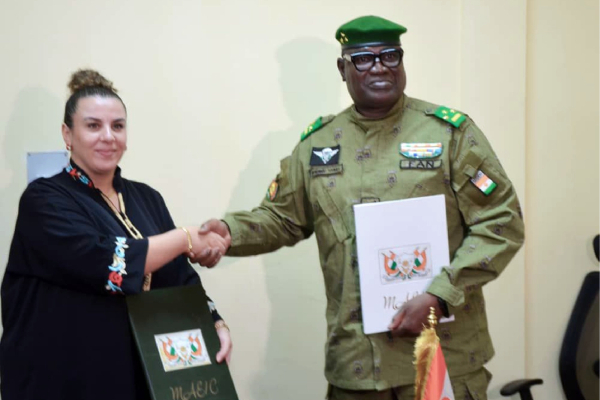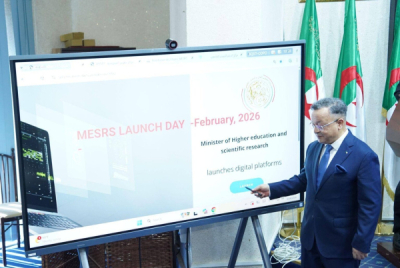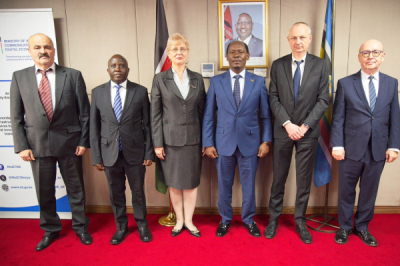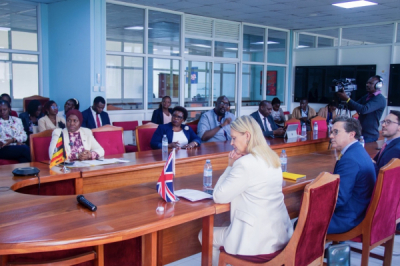Niger is launching a major overhaul of its identification system to boost security and improve administrative efficiency. The government will use biometric technology to modernize ID documents and better serve citizens.
On June 27, in Niamey, Niger’s Minister of State for the Interior, General Mohamed Toumba, signed two memorandums of understanding with Wissal Samtali, director of the Libyan firm Al Itissan Al-Jadeed, which specializes in biometric and digital identity solutions. These agreements set up a public-private partnership to revamp Niger’s identity documents.
Signature ce Vendredi 27 juin 2025 à Niamey, de deux mémorandums d'entente entre le Ministre d'État, Ministre de l'Intérieur de la Sécurité Publique et de l'Administration du Territoire, le Général de Division Mohamed Toumba et la Directrice de la société Al Itissan Al-Jadeed… pic.twitter.com/MYAo9k7ib1
— النيجر بالعربية Niger Fr (@NigerAR) June 27, 2025
The first memorandum covers the design, financing, construction, and maintenance of a system to issue electronic biometric passports. These e-passports will be made of polycarbonate and contain secure chips to fight fraud and improve the credibility of Nigerien travel documents internationally.
The second memorandum launches the creation of a new electronic national identity card (e-ID). The card will meet international security standards and enable secure online identification. Officials expect it to speed up administrative processes and lay a foundation for efficient digital governance.
These efforts go beyond simple document upgrades. Niger aims to build a digital ecosystem where secure identification supports services such as online authentication, e-government platforms, banking, social protection programs, and border control.
However, authorities must overcome challenges to make the new e-ID a true tool for development and inclusion. They must ensure fair access across the country, build a reliable and connected identification system, enforce legal protections, and secure citizens’ data—a crucial asset in today’s digital economy.
This partnership marks a key step in Niger’s modernization strategy and highlights the growing importance of intra-African cooperation. Wissal Samtali said the deal sends a strong signal that could encourage more cross-border projects in identification technology across Africa.
Samira Njoya



















